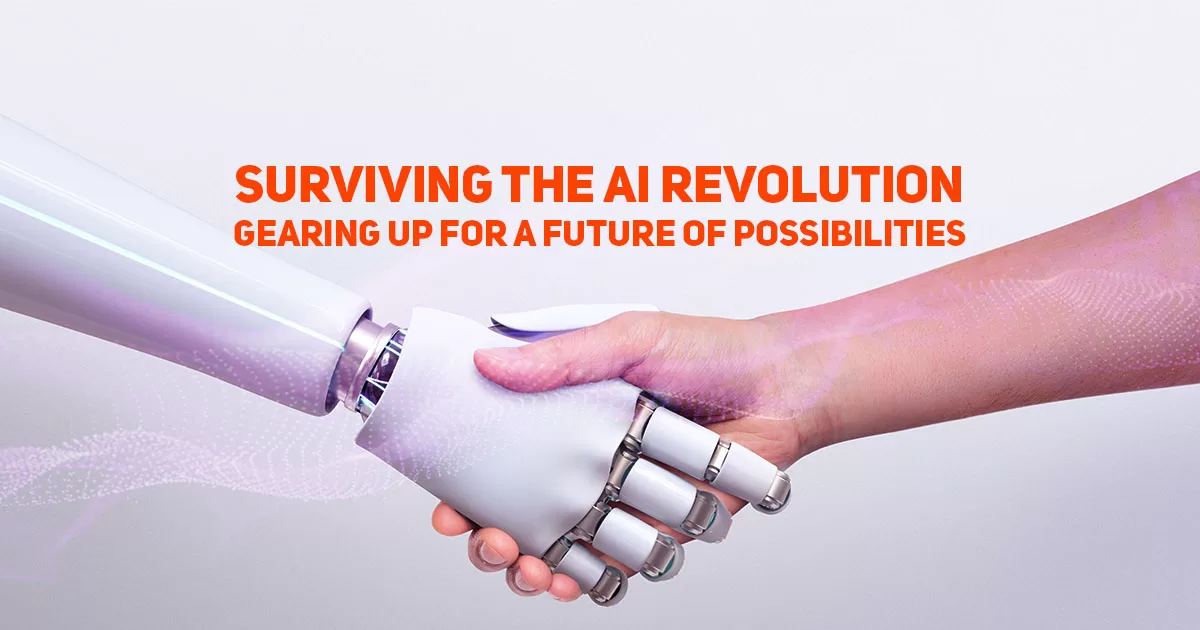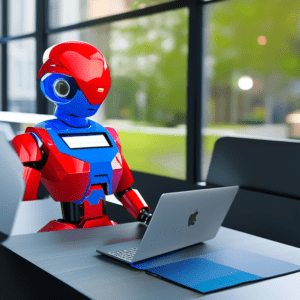
Surviving the AI Revolution: Gearing Up for a Future of Possibilities
Artificial Intelligence (AI) is rapidly transforming the way we live, work, and interact with each other. From virtual assistants like Siri and Alexa to self-driving cars and personalized medical treatment, AI is everywhere. According to a report by Gartner, by 2025, the global AI market is expected to reach $190 billion, with 50% of businesses using AI in their operations. However, as AI continues to advance, it will also have a significant impact on the job market, leading to job displacement and new job creation. In this blog post, we will discuss how to prepare for AI’s impact and how people’s work will be replaced by AI, and who will survive.
How AI will replace people’s work
As AI technology advances, it will continue to automate tasks that were previously performed by humans. This automation will lead to job displacement, particularly in industries that rely heavily on manual labor, such as manufacturing and logistics. According to a report by McKinsey, up to 800 million jobs could be displaced by AI by 2030.
Here are some examples of how AI is already replacing human labor:
- Manufacturing: AI-powered robots are increasingly being used in manufacturing to perform tasks such as assembling products and welding.
- Retail: Retail companies are using AI-powered chatbots to handle customer inquiries and automate repetitive tasks such as order processing and inventory management.
- Transportation: Self-driving cars and trucks are being developed to replace human drivers in the transportation industry.
- Finance: AI-powered software is being used to automate financial analysis, fraud detection, and customer service in the banking industry.
- Healthcare: AI is being used to develop personalized treatment plans, diagnose diseases, and analyze medical images.
How to gear yourself up for the future
The impact of AI on the job market will be significant, and it’s essential to prepare for it. Here are some ways to gear yourself up for the future:
- Upskill: As AI takes over routine tasks, jobs that require critical thinking, creativity, and problem-solving skills will become more in-demand. Therefore, it’s essential to upskill and acquire new skills that are relevant to the future job market. This may involve taking courses in data analysis, programming, or even creative fields such as design and writing.
- Embrace lifelong learning: AI is constantly evolving, and so should your skills. Make learning a lifelong habit by regularly taking courses, attending workshops, and reading books to stay updated with the latest trends and technologies.
- Develop transferable skills: Transferable skills such as communication, teamwork, and adaptability will be essential in the future job market. Develop these skills by working on group projects, volunteering, or participating in extracurricular activities.
- Be flexible: The job market is constantly changing, and so should you. Be open to new opportunities and be willing to adapt to new technologies and working environments.
Who will survive AI’s impact

The impact of AI on the job market will be significant, but it’s not all doom and gloom. New jobs will be created as a result of AI, particularly in areas that require human skills such as empathy, creativity, and critical thinking. Here are some examples of jobs that are likely to survive AI’s impact:
- Healthcare professionals: While AI can assist in diagnosing diseases and developing treatment plans, healthcare professionals will still be needed to provide personalized care to patients.
- Creative professionals: AI may be able to generate content such as news articles and advertisements, but it cannot replace human creativity. Creative professionals such as writers, designers, and artists will still be in demand.
- Educators: While AI can automate certain aspects of education, such as grading and lesson planning, educators will still be needed to provide guidance and support to students.
- Human resources: AI can assist in recruiting and screening job candidates, but human resources professionals will still be needed to manage employee relations, performance, and development.
- Sales professionals: While AI can assist in lead generation and customer support, sales professionals will still be needed to build relationships with clients and close deals.
- Service professionals: Jobs in the service industry such as hospitality, food service, and retail are likely to survive AI’s impact as they require human interaction and personalized service.
In conclusion, AI’s impact on the job market will be significant, but it’s not all bad news. As AI continues to automate routine tasks, new jobs will be created in areas that require human skills such as creativity, empathy, and critical thinking. To prepare for AI’s impact, it’s essential to up-skill, embrace lifelong learning, develop transferable skills, and be flexible. By doing so, you can gear yourself up for the future and ride the AI revolution to greater possibilities.



Leave a Comment